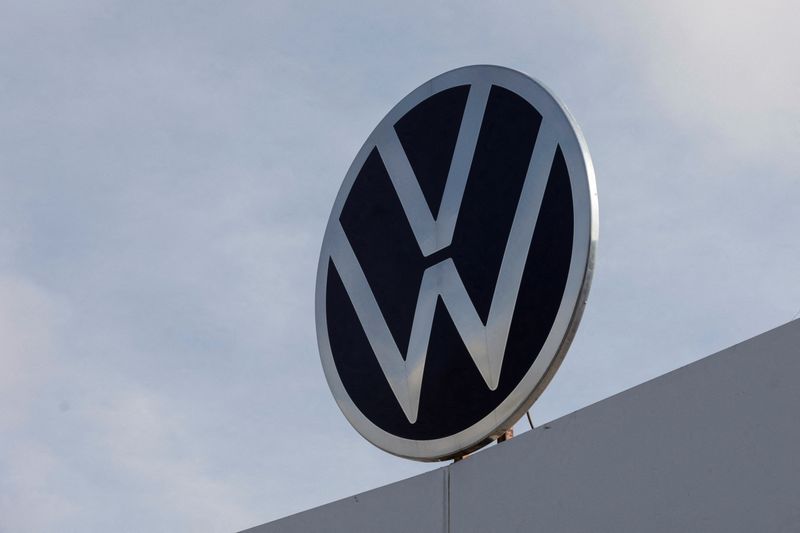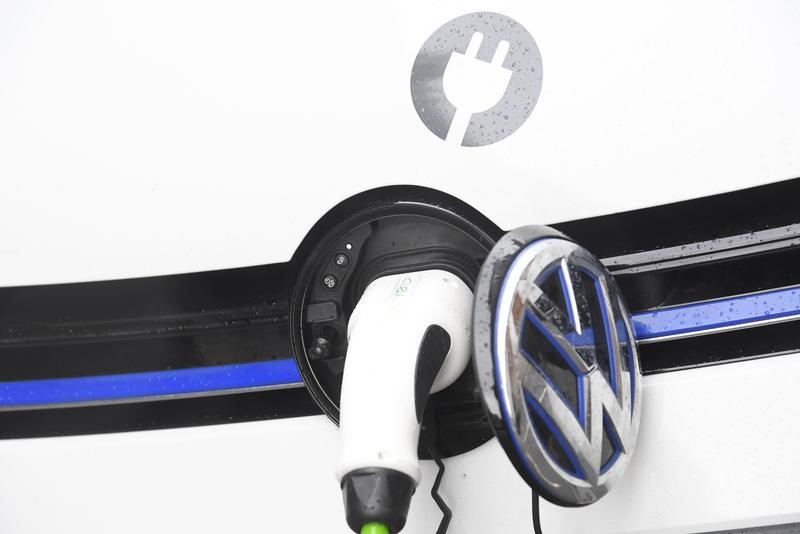By Ben Blanchard and Jan Schwartz
TAIPEI (Reuters) -Volkswagen is monitoring metals markets after China imposed export restrictions on two minor metals used in semiconductors and electric vehicles, it said on Thursday, while some chipmakers played down fears of shortages.
Fears are growing that more curbs on strategic exports including rare earths could be coming after a top Chinese trade adviser said on Wednesday that the limits on gallium and germanium, effective Aug. 1, were "just a start".
China's abrupt announcement on Monday of controls from Aug. 1 on exports of some gallium and germanium products, also used in electric vehicles (EVs) and fibre optic cables, has sent companies scrambling to secure supplies and bumped up prices.
The move, which came just days before U.S. Treasury Secretary Janet Yellen arrived in Beijing on Thursday for a visit, has also prompted more companies to re-think their reliance on the world's No. 2 economy.
VW, which relies on gallium and germanium for automotive products, said it was "ready to take measures together with its partners if necessary" but did not elaborate. The metals will play a role in future autonomous driving functions, a spokesperson for the German automaker said.
Alternative sources of gallium cannot be brought on stream before the restrictions take effect next month and existing supplies will only last for a period of months, experts said.
"Inventories outside of China are nothing more than maybe six months at best, so this will bite fairly quickly," said Alastair Neill, director at the Critical Minerals Institute.
Setting up a facility would take a couple of years and require investment which might not be rewarded if China changes its stance in the meantime, he added.
"The challenge is if you go down that road and then China brings off the ban, you may be stuck with a white elephant."
The U.S. Defense Department holds a strategic stockpile for germanium but currently has no inventory reserves for gallium, a spokesperson said on Thursday.
The export curbs are likely to further strain U.S.-China relations as the two countries vie for dominance in semiconductor and defence technologies.
Both sides are sceptical that Yellen's four-day visit will ease the situation, with officials accepting that both countries have placed safeguarding national security above economic ties.
"If the talks between the two sides go well, many restrictions could be loosened, but if the talks go badly, both sides may put up more sanctions after Yellen goes home," said Capital Securities Corp analyst Liao Chien-yu.
Some industry players said the restrictions could leave China with a glut of the two metals, weighing on domestic prices even as costs overseas jumped this week.
Germanium is used in high-speed computer chips, plastics, and in military applications such as night-vision devices, as well as satellite imagery sensors. Gallium is used in radar and radio communication devices, satellites and LEDs.
Some larger chip manufacturers view China's export controls on gallium as more of a warning shot about what economic pain the country could inflict.
But if prices rise as restrictions take hold companies would have another reason to shift supply chains.
Taiwan's WIN Semiconductors, which uses gallium for optoelectronic devices, told Reuters only a "small number" of substrates are purchased from China, with most of its supplies coming from Germany and Japan.
Taiwan's TSMC, the world's largest contract chipmaker, said it does not expect any direct impact on its production from the moves.

Taiwan is a major producer of chips used in everything from smartphones and cars to fighter jets, supplying companies like Apple (NASDAQ:AAPL) and Nvidia (NASDAQ:NVDA).
Chipmaker NXP Semiconductors (NASDAQ:NXPI) sees no material impact on its business. NXP makes some chips for the auto and communications sectors using gallium or germanium.
